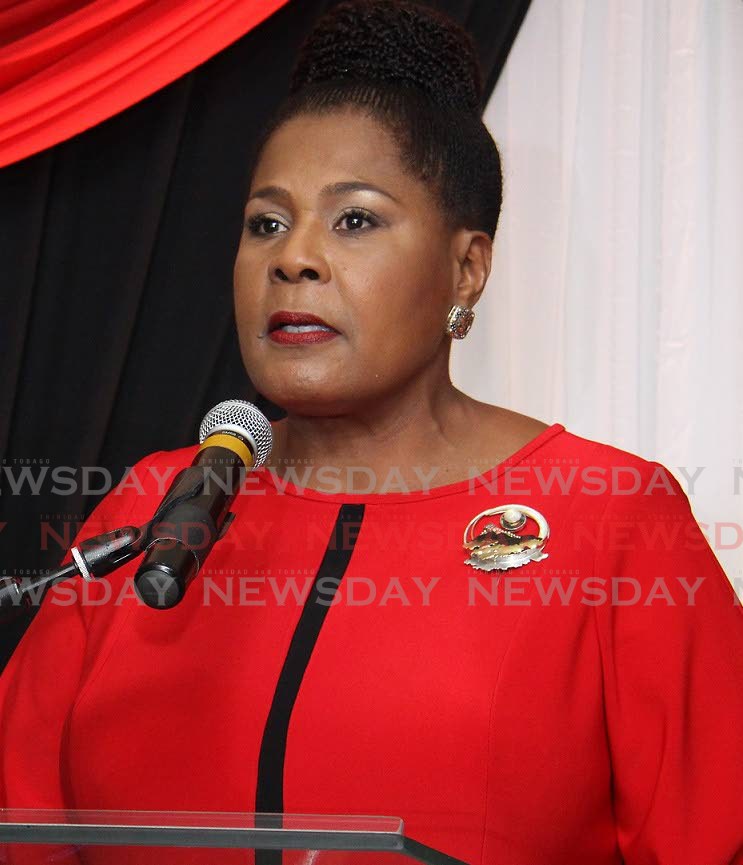Government officials tight-lipped on presidential nominees

GOVERNMENT officials were tight-lipped on Saturday about potential nominees to succeed outgoing President Paula-Mae Weekes.
In a notice in the TT Gazette dated December 23, Speaker of the House of Representatives and chairman of the Electoral College, Bridgid Annisette- George said the Electoral College will convene on January 20 when a new President of TT will be elected.
“A person shall not be a candidate for election as President of the Republic of Trinidad and Tobago unless nominated for election by a nomination paper which (a) is signed by the candidate and by 12 or more Members of the House of Representatives; and (b) is delivered to the Speaker at least seven days before the election.”
Weekes, a retired Justice of Appeal in TT and The Turks and Caicos Islands, took office on 19 March, 2018 after being elected on January 19 of that year. As she was the only candidate nominated, she was deemed elected without the need for a vote and made history by becoming the first female President of TT.
She is the country’s sixth President after Ellis Emmanuel Innocent Clarke (September 24, 1976 – March 19, 1987), Noor Mohamed Hassanali (March 20, 1987 – March 17, 1997), Arthur Napoleon Raymond Robinson (March 18, 1997 – March 16, 2003), George Maxwell Richards (March 17, 2003 – March 18, 2013) and Justice Anthony Thomas Aquinas Carmona (March 19, 2013 – March 18, 2018).
Carmona and Robinson (deceased) served one term as President while Clarke (deceased), Hassanali (deceased) and Richards served two.
Speaking on condition of anonymity on Saturday, senior government officials said they had no idea about who is being considered as the Government’s nominees.
One official said, “That is entirely up to the Prime Minister.”
Dr Rowley was unavailable for comment.
Last week, UNC deputy political leader Dr Roodal Moonilal said the Opposition will caucus as to whether it will nominate someone to succeed Weekes.
Moonilal said the UNC would oppose moves for either Rowley or Senate President Christine Kangaloo to be elected President.
Under the Constitution, the Senate President acts as President when the President is unable to carry out his or her duties.
The Electoral College comprises all members of the House of Representatives and Senate.
With a combined vote of 37 (22 MPs, 15 senators), the Government holds the majority vote in the college. This means whoever the Government chooses as its nominee will be elected as the next president.
The Opposition has a combined vote of 24 (19 MPs, six senators).
The nine independent senators, who are chosen solely by the President under the Constitution, have one vote each.
Robinson was the only active politician to be elected president.
With the exception of Richards (a former UWI campus principal), all other presidents have had some kind of legal background either as judges or attorneys.
Sources said Government could stick with this pattern in choosing its nominee.
Last Thursday, the National Transformation Alliance (NTA) said Weekes’s tenure will be remembered by the events which led to the collapse of the Police Service Commission (PSC) in September and the failure to send a merit list of candidates for commissioner of police (CoP) to the House of Representatives for consideration.
In a statement, the NTA claimed that Weekes attracted negative comments from members of the public for “her perceived pontificating, criticising, and scolding of citizens in almost every address that she made.”
The party said citizens could be forgiven now for breathing a sigh of relief that Weekes will not continue for another term in office.
The NTA claimed Weekes and President’s House were the centre of the debacle, with regards to the merit list for the appointment of a new CoP.
The party is led by former CoP Gary Griffith.
The NTA wondered if any alleged actions or inactions with respect to this matter could have resulted in the Prime Minister and National Security Minister Fitzgerald Hinds not having “to face so many questions with regards to the runaway crime that our country is presently facing.”
On October 21, the Parliament rejected a motion filed by Opposition Leader Kamla Persad-Bissessar to remove Weekes from office in relation to the collapse of the PSC and the failure to send a CoP merit list to the House.


Comments
"Government officials tight-lipped on presidential nominees"